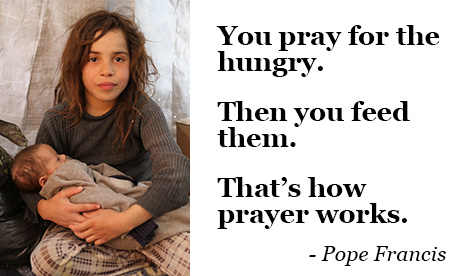The decision by the United States Conference of Catholic Bishops to close down Catholic News Service was terrible in terms of lowering the standards of Catholic journalism.
It was terrible, also, because of its ecclesial significance, which is a related but different concern, one that strikes at a deeper issue for the nation’s bishops.
The commentary from Fordham University’s David Gibson, touched on some of the reasons why closing Catholic News Service was ill-advised pastorally.
Gibson observed that CNS is “a counterwitness to the proliferation of ideologically driven Catholic media platforms that are driving the church apart, and regular Catholics around the bend — often right out of Catholicism.”
That is surely true.
It is also clear that not enough bishops were alarmed by the prospect that the only remaining wire service specifically focused on news about the Catholic Church in the United States would be the Catholic News Agency, a subsidiary of EWTN.
More bishops need to adopt the posture taken by Bishop Christopher Coyne of Burlington, Vermont, a former chair of the bishops’ Committee on Communications.
“In Burlington, we don’t want anything to do with CNA because of its affiliation with EWTN and the anti-Francis rhetoric on the network,” Coyne told America magazine recently.
Several bishops have indicated to me that it was not clear that the complete closing of CNS was what they were voting for last year during the executive session at their fall assembly in Baltimore, when they chose one of five models presented by Archbishop Timothy Broglio, chair of the bishops’ Committee on Priorities and Plans.
They told me that they understood there would be cutbacks, but not a complete suspension of operations.
What is more, there was no real discussion of the proposal except as a necessary budgetary measure.
Here, then, I need to disagree somewhat with the explanation offered by former CNS editor Tony Spence, who told NCR’s Brian Fraga, “The culture warrior bishops at the USCCB have always had a certain amount of animus to CNS because it offers straight unbiased reporting.
“Culture warriors don’t want straight unbiased reporting.
“They want an echo chamber where everyone has the same opinion.”
The joys and the hopes, the griefs and the anxieties of the men of this age, especially those who are poor or in any way afflicted, these are the joys and hopes, the griefs and anxieties of the followers of Christ.
That is true, but this was not presented to the bishops as a culture war fight and, if it had been, I doubt it would have secured enough votes to pass, or at least it would have generated more opposition.
No, the deeper – and in some ways worse – problem is that the bishops have lost their own commitment to civic engagement, of which the responsibility for providing reliable information is so integral a part.
One hundred years ago, bishops were princes, and they ventured forth into the public square from their episcopal manses as leaders of their flock, powerbrokers of a sort, more akin to a labour leader or a prominent civic leader.
Ironically, after Vatican II called for the church to be an instrument, even a sacrament of the unity of humankind in the world, the bishops lost their footing.
They were not clear what tasks were to be ceded to the laity and what remained in their competence.
The turbulence of the times, especially the focus less and less on issues of economic justice and more on neuralgic issues of pelvic theology that would come to characterize the culture wars, further estranged the bishops from any kind of civic engagement.
Their role was reduced to that of an ethical authority in the public square, and they never grasped the degree to which the church’s traditional, personal ethics on sexual matters was difficult to translate into any kind of public ethics, especially in a pluralistic society.
Then came the sexual abuse crisis and many bishops resorted to hiding under their desks.
Now, the bishops largely focus on the internal life of the church. Continue reading
- Michael Sean Winters covers the nexus of religion and politics for NCR.
News category: Analysis and Comment, Palmerston.




